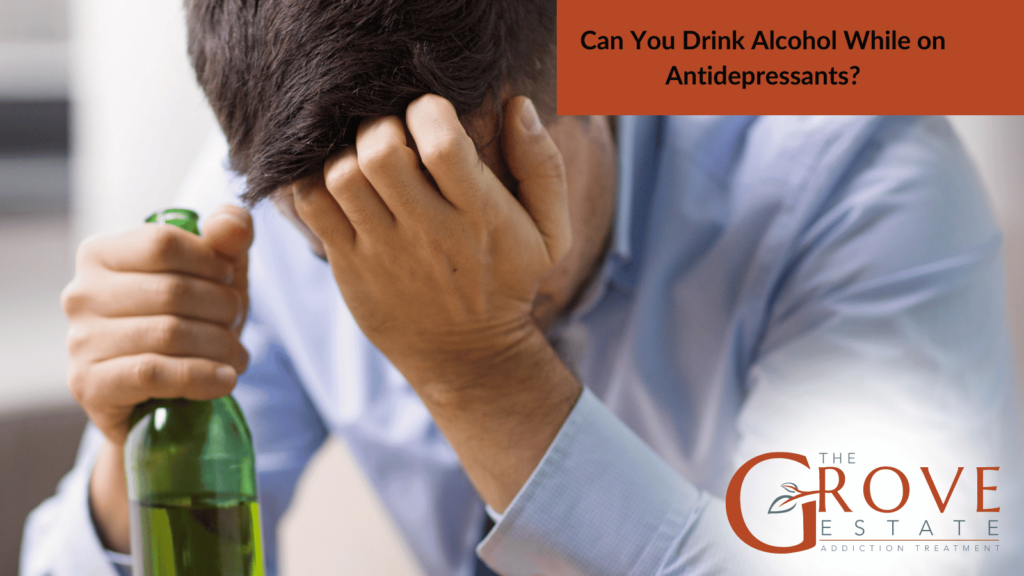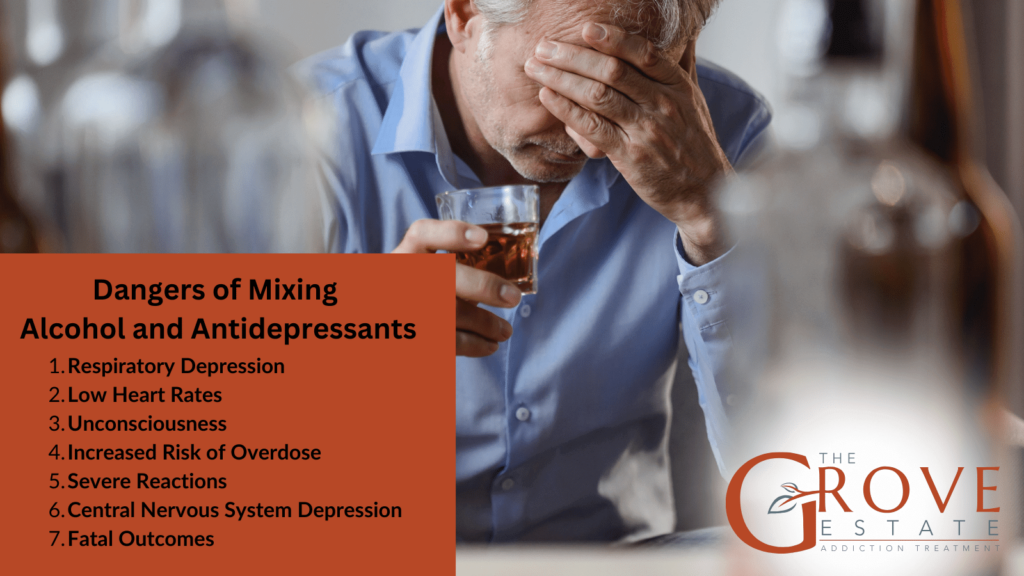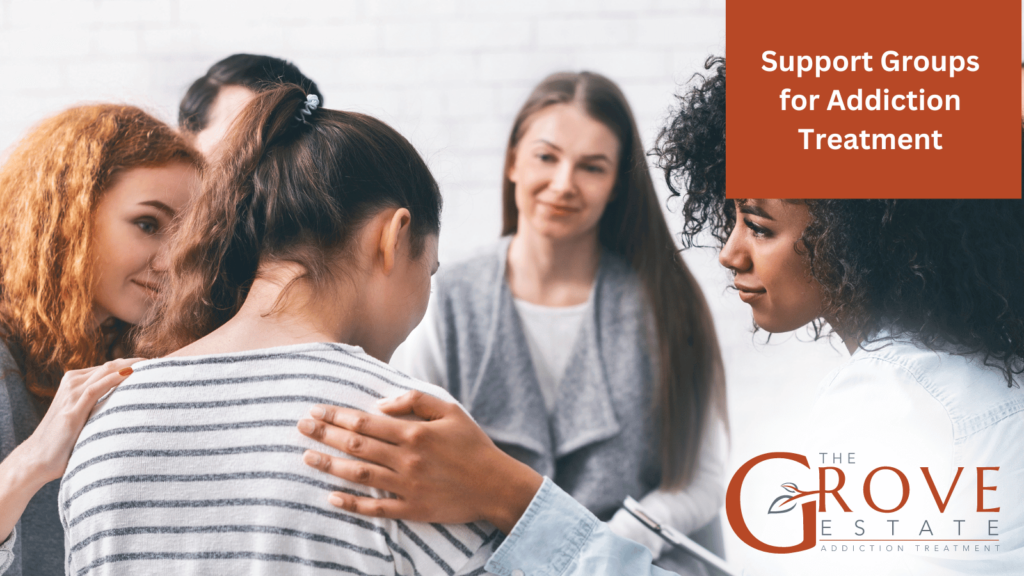Antidepressants are medications commonly prescribed to treat depression, anxiety disorders, and other mental health conditions. They work by altering the balance of neurotransmitters in the brain, such as serotonin and norepinephrine, to help improve mood and alleviate symptoms of mental illness. Despite the risks, some individuals taking antidepressants may consume alcohol, often due to social habits, a lack of awareness about the potential interactions, or as an attempt to self-medicate or enhance the effects of the medication.
The prevalence of alcohol consumption among individuals taking antidepressants is noteworthy. Studies suggest that a significant percentage of patients prescribed antidepressants consume alcohol during their treatment. For example, research published in the Journal of Clinical Psychiatry found that nearly one-third of antidepressant users reported drinking alcohol while on medication. This concurrent use can pose risks, as alcohol can counteract the benefits of antidepressants, worsen depression symptoms, increase side effects, and lead to potentially dangerous interactions.

Can You Drink Alcohol While on Antidepressants?
Medical professionals generally advise against drinking alcohol while taking antidepressants. The reason is that alcohol can interfere with the effectiveness of the medication and exacerbate its side effects. Antidepressants are prescribed to regulate mood and improve mental health conditions, and alcohol, being a depressant, can counter these effects, potentially worsening the symptoms of depression or anxiety.
The Risks Associated with Mixing Alcohol and Antidepressants
Mixing alcohol and antidepressants can lead to increased risks, such as:
- Heightened Side Effects: Alcohol can amplify the side effects of antidepressants, such as drowsiness, dizziness, and impaired coordination, which can affect a person’s ability to perform daily activities safely.
- Worsened Depression and Anxiety Symptoms: Alcohol can negate the positive effects of antidepressants on mood and even worsen the symptoms of depression and anxiety over time.
- Increased Risk of Overdose and Toxicity: Combining alcohol with certain types of antidepressants can increase the risk of overdose or lead to a toxic reaction, particularly with medications like monoamine oxidase inhibitors (MAOIs) or tricyclic antidepressants.
- Interference with Medication Efficacy: Regular alcohol consumption can interfere with the body’s ability to absorb and metabolize antidepressants, potentially diminishing their effectiveness and delaying recovery.
What are the Specific Dangers of Mixing Alcohol with Different Types of Antidepressants?
The dangers of mixing alcohol with antidepressants can vary depending on the type of antidepressant medication being used:
- Selective Serotonin Reuptake Inhibitors (SSRIs): While SSRIs like fluoxetine (Prozac) and sertraline (Zoloft) are generally safer with alcohol compared to other antidepressants, mixing them can still increase the risk of side effects such as drowsiness, dizziness, and impaired coordination. It can also reduce the medication’s efficacy in treating depression.
- Serotonin-Norepinephrine Reuptake Inhibitors (SNRIs): For those taking SNRIs like venlafaxine (Effexor) or duloxetine (Cymbalta), combining these with alcohol can lead to increased blood pressure, heightened liver stress, and exacerbated side effects like sedation and coordination problems.
- Tricyclic Antidepressants (TCAs): Mixing alcohol with TCAs such as amitriptyline or nortriptyline can lead to dangerous increases in sedation, severe blood pressure drops, and enhanced cardiac risks, making this combination particularly hazardous.
- Monoamine Oxidase Inhibitors (MAOIs): Combining alcohol with MAOIs like phenelzine (Nardil) can be extremely dangerous, leading to severe high blood pressure, headaches, and even life-threatening conditions like hypertensive crisis.
- Atypical Antidepressants: Medications like bupropion (Wellbutrin) have unique interactions with alcohol, where the risk of seizures can be significantly increased when combined with heavy drinking.

What is the Risk of Death When Combining Alcohol and Antidepressants?
Mixing alcohol and antidepressants will lead to potentially fatal outcomes, especially when large amounts of alcohol are consumed. The sedative effects of both substances can synergistically depress the central nervous system, leading to respiratory depression, dangerously low heart rates, and even unconsciousness. These risks are exacerbated in individuals with a history of substance abuse or other underlying health conditions, increasing the likelihood of overdose or severe reactions.
What is the Treatment for Co-Occurring Alcoholism and Antidepressant Use?
Treating co-occurring alcoholism and antidepressant use involves addressing both substance use and mental health issues simultaneously, a practice known as integrated treatment. This approach ensures that both conditions are treated as interrelated, recognizing that each can impact the other. This comprehensive strategy encompasses the following key components:
- Integrated Assessment: A comprehensive evaluation is conducted to understand the extent of alcohol use and the mental health condition being treated with antidepressants. This helps in developing a personalized treatment plan.
- Medication Management: Careful management of antidepressants is crucial, and in some cases, the medication regimen may need to be adjusted. Healthcare providers will also assess the need for medication to address alcohol dependency.
- Psychotherapy: Cognitive-behavioral therapy (CBT) and other forms of therapy can be effective in treating both substance use disorders and the underlying mental health conditions. Therapy aims to help the individual develop coping strategies, understand the triggers for alcohol use, and address the psychological factors contributing to both conditions.
- Support Groups and Peer Support: Participation in support groups like Alcoholics Anonymous (AA) or Dual Diagnosis Anonymous (DDA) can provide peer support and shared experiences, aiding in recovery.
- Inpatient or Outpatient Treatment Programs: Depending on the severity of the situation, inpatient (residential) treatment or outpatient programs that offer a structured approach to recovery may be recommended.
- Aftercare and Ongoing Support: Long-term management and support are essential for sustaining recovery and preventing relapse. This may include ongoing therapy, support groups, and regular follow-up with healthcare providers.
The goal of treatment for co-occurring alcoholism and antidepressant use is to achieve sobriety while effectively managing the mental health condition, thereby improving overall quality of life and reducing the risk of relapse.

How Do You Safely Manage Alcohol Consumption While on Antidepressants?
For those who choose to drink while on antidepressants, it is critical to manage alcohol consumption safely through harm reduction strategies. This involves consulting with healthcare providers to discuss alcohol use and potentially adjust medication or dosages accordingly. Moderation is key, and individuals should closely monitor their alcohol intake to avoid negative interactions with their medication.
Being aware of and vigilant for increased side effects, such as heightened sedation, dizziness, or exacerbated depressive symptoms, is also essential. Avoiding situations where heavy drinking might occur can help prevent dangerous outcomes. Additionally, regular medical check-ups are important to monitor health and the effectiveness of the antidepressant treatment, allowing for necessary adjustments over time. While these strategies can reduce risks, abstaining from alcohol is the safest option for those on antidepressants.
What to avoid when taking antidepressants?
Avoid alcohol, illicit drugs, and certain medications like sedatives or sleeping pills that can interact with antidepressants.
Is it OK to drink alcohol while taking citalopram?
It’s best to avoid alcohol while taking citalopram, as it can increase side effects and reduce medication effectiveness.
How much alcohol can you drink while on antidepressants?
Ideally, no alcohol should be consumed. If you do drink, it should be minimal and discussed with your healthcare provider.
Can I skip my antidepressant to drink?
Skipping medication to drink alcohol is not recommended as it can disrupt the treatment’s effectiveness and mental health stability.
Which antidepressants are worse with alcohol?
MAOIs and tricyclic antidepressants have more severe interactions with alcohol, increasing risks of high blood pressure, heart problems, and extreme sedation.
What is the best antidepressant if you drink alcohol?
No antidepressant is safe to combine with alcohol, but SSRIs tend to have fewer severe interactions. However, it’s important to consult with a healthcare provider for personal advice.
How does alcohol affect the metabolism of antidepressants?
Alcohol can significantly impact the metabolism of antidepressants, potentially reducing their effectiveness and leading to worsened mental health symptoms. According to Healthline, alcohol may alter the levels of enzymes that help metabolize medications in the liver. This interaction can lead to higher or more unpredictable blood levels of antidepressants, making it difficult to maintain the correct dosage and efficacy. For an in-depth understanding of this interaction, specifically with drugs like doxycycline, you might find our page on alcohol and Doxycycline helpful.
Furthermore, the role of family support in managing mental health conditions cannot be understated. A supportive family environment can contribute significantly to the adherence to treatment protocols and the overall emotional well-being of an individual taking antidepressants. For more resources on how families can be part of the treatment process, visit our family integration page.

Share This Post



